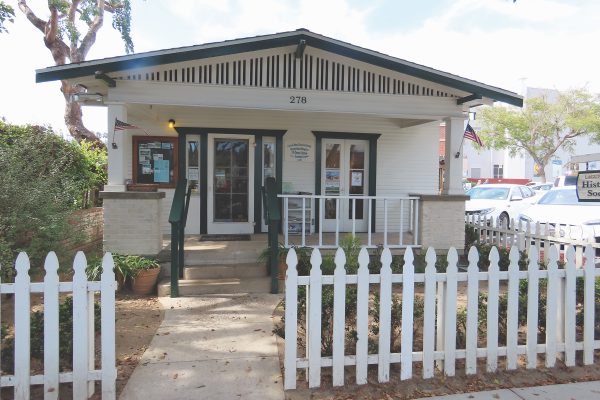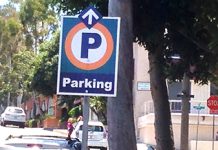
By Megan Miller, Special to the Independent
The California Coastal Commission certified changes to Laguna Beach’s historic preservation law Thursday, ending a five-year-long tug of war between private property rights and the preservation of the City’s historic charm.
Laguna Beach City Council originally passed the law in August 2020 on a 4-1 vote, with Councilmember Toni Iseman dissenting. The Commission voted 8-2 to approve these changes, with coastal staffers’ modifications.
Commissioner Mike Wilson and Alternate Commissioner Belinda Faustinos dissented, echoing resident concerns over losing protection for coastal structures and bungalows, some of which have been around since the 1920s.
Erosion of historic charm often happens “one by one, little by little,” Wilson warned.
Laguna Beach Community Development Director Marc Wiener said “there are plenty of safety nets in place” to prevent homes presumed historic from being destroyed.
Among the revisions approved by the Commission was the elimination of Laguna Beach’s 1981 Historic Inventory, a list of about 700 pre-World War II homes, including 250 accepted into the City’s Historic Register. The state panel also greenlighted inclusion of owner consent as a criterion for classifying properties as local historic resources.
Faustinos asked whether owner consent would overrule the City’s determination of the historicity.
Wiener said Laguna Beach retains a “low threshold” for what goes before a public hearing, with new projects going through an average of two to three public hearings to assess historicity and aesthetic appeal before they can be approved.
Owner consent only applies to the local Register, Wiener added. Owners of structures on the California Register of Historic Places and the National Register of Historic Places must comply with state and federal preservation laws.
About 325 properties are already recognized by the City’s Historic Register for their unique character, with about 71 having been added in the last 10 years, Wiener said. The City received another three applications just this week.
Tax breaks, parking reductions, and other financial incentives encourage property owners to register their historic homes with the City. Laguna Beach also holds 116 Mills Act contracts, which aim to offset the cost of upkeep of historic homes with reduced property taxes.
However, opponents to the law fear that some 400 homes in the Historic Inventory that are not on the Historic Register may lose protection, thus violating the California Environmental Quality Act (CEQA), which considers historical resources such as buildings and structures to be under the same protections as the natural environment.
An environmental review described by Laguna Beach resident and attorney Deborah Rosenthal called “woefully lacking,” was included in the Coastal Commission staff report. Some public comments called to delay the decision so the Commission could conduct a full report.
Iseman said in the hearing that one of the reasons she voted against the law in 2020 was because she “was convinced by the evidence that the City violated CEQA.”
Village Laguna, Preserve Orange County, the Laguna Beach Historic Preservation Coalition filed a lawsuit against the City last January claiming CEQA violations. Laguna Beach motioned in March to stay proceedings before the Coastal Commission could make its decision on the law.
Preceding the Commission’s vote, Vice Chair Karyl Hart said she understood there were “strong feelings on both sides,” but felt that the ordinance had already undergone an adequate number of processes in its years-long conception.
Laguna Beach has six months to submit the recommended changes to the Coastal Commission for approval before the law can go into effect.





I am not sure where the idea came from that homes are the only historic buildings affected by the proposed Ordinance. The Inventory covered commercial and civic properties as well, including many small-scale buildings along Forest and Ocean and Coast Highway. Despite the City’s claims to the contrary, if the Inventory is eliminated, all properties that aren’t designated on a Historic Register would lose the protections they enjoy today.